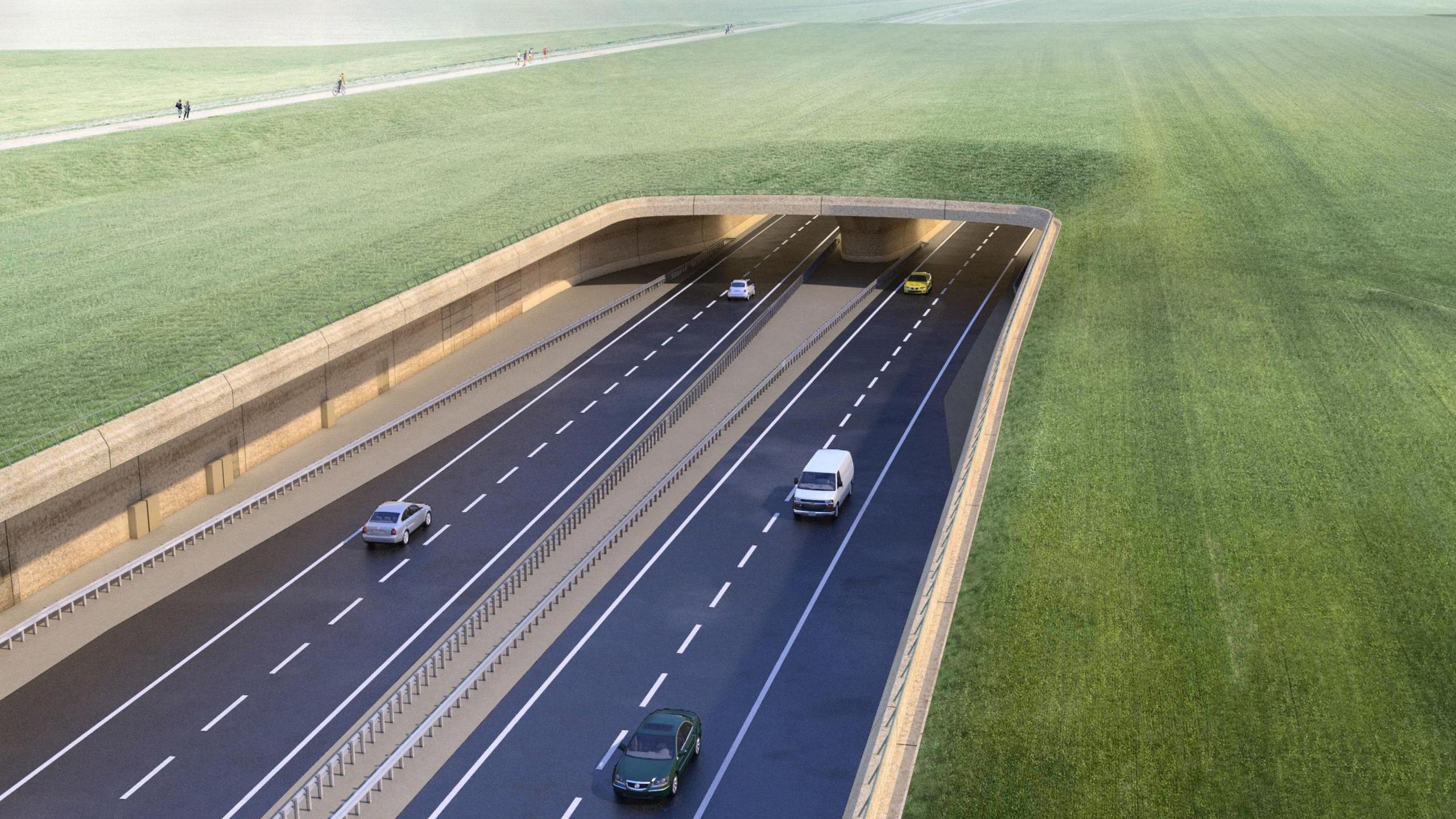Railway sorely in need of investment, study finds
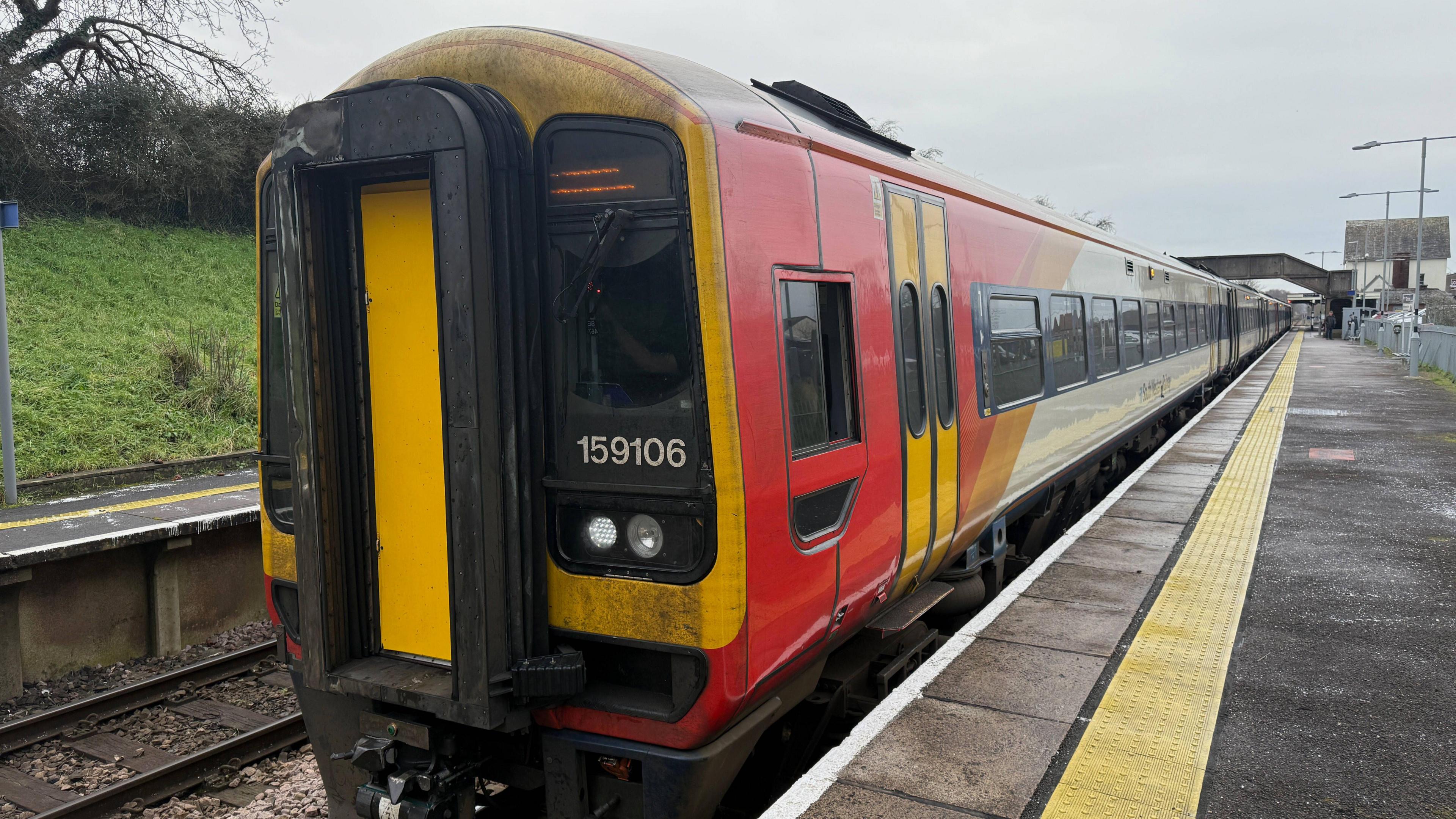
South Western Railway has said the 35-year-old Class 158/9 diesel trains will need to be replaced from around 2030
- Published
The railway linking London and the South West of England is "sorely in need of investment" to offset the cancellation of major road projects, a new study has found.
The government halted a planned tunnel for the A303 past Stonehenge within weeks of winning the general election in 2024. It stated that the £2bn scheme was "poor value for money".
It also stopped other road improvements, ending a long-planned upgrade of the A303 to a dual carriageway "expressway" between the M3 at Basingstoke and the M5 at Taunton.
The new study recommends improving the parallel West of England railway line through Salisbury, "in the absence of a plan based on road widening".
It has been compiled by respected transport consultants Greengauge 21 on behalf of groups which opposed the Stonehenge tunnel.
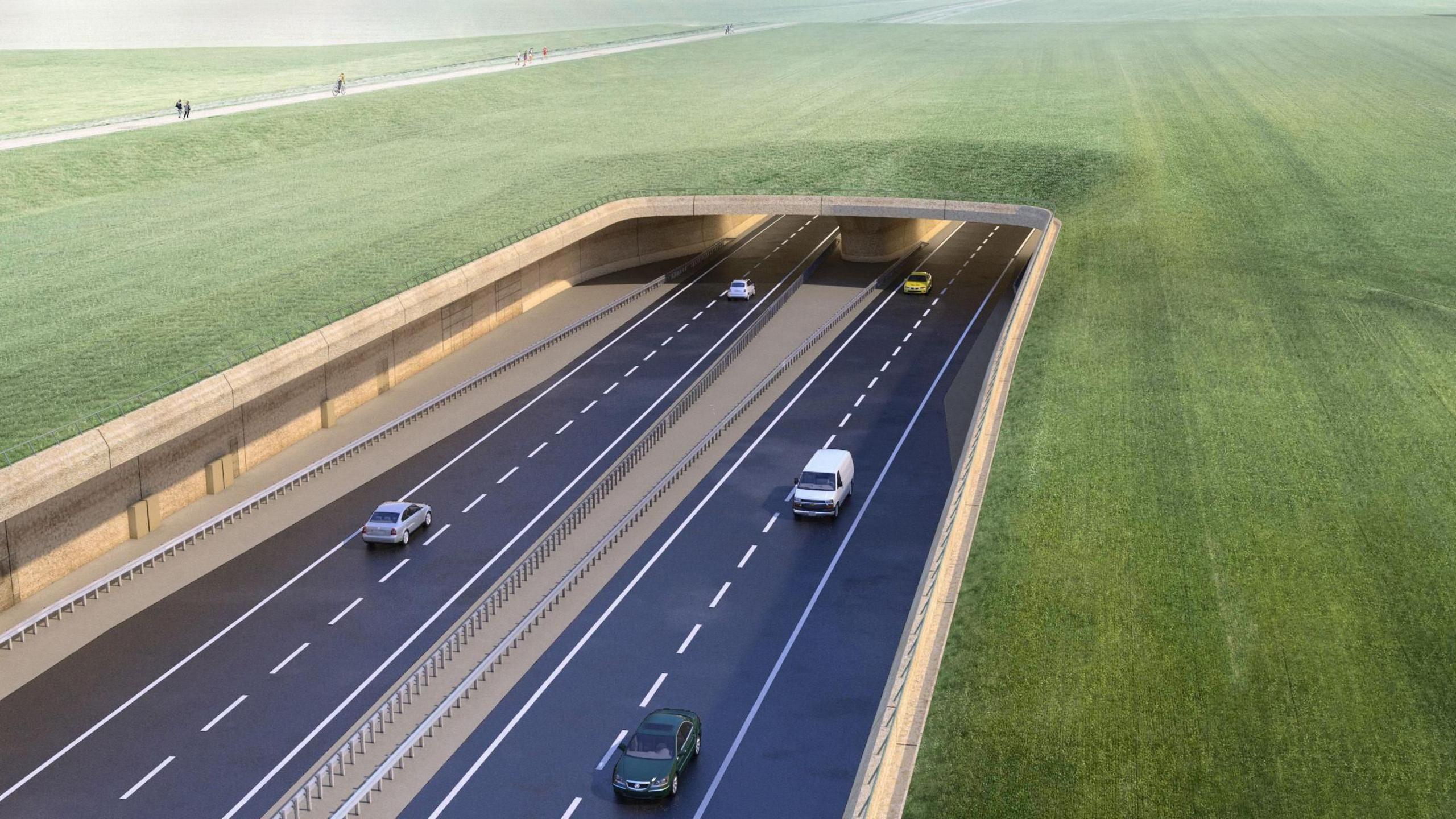
The proposed A303 tunnel under Stonehenge was scrapped in July
The report concluded: "It is a railway that fails the most basic tests of meeting passenger needs of service reliability and the ability to get a seat."
It also says "peak services are usually overcrowded".
It endorses proposals by Network Rail and South Western Railway (SWR) to replace life-expired diesel trains with "discontinuous electrification".
Existing electric SWR trains would be adapted to use battery power for parts of the route.
They would recharge on 80km of new electric "islands" drawing power from sections of third rail.
SWR has said the 35-year-old Class 158/9 diesel trains based at Salisbury depot will need to be replaced from around 2030.
They are the only diesels to use London Waterloo station.
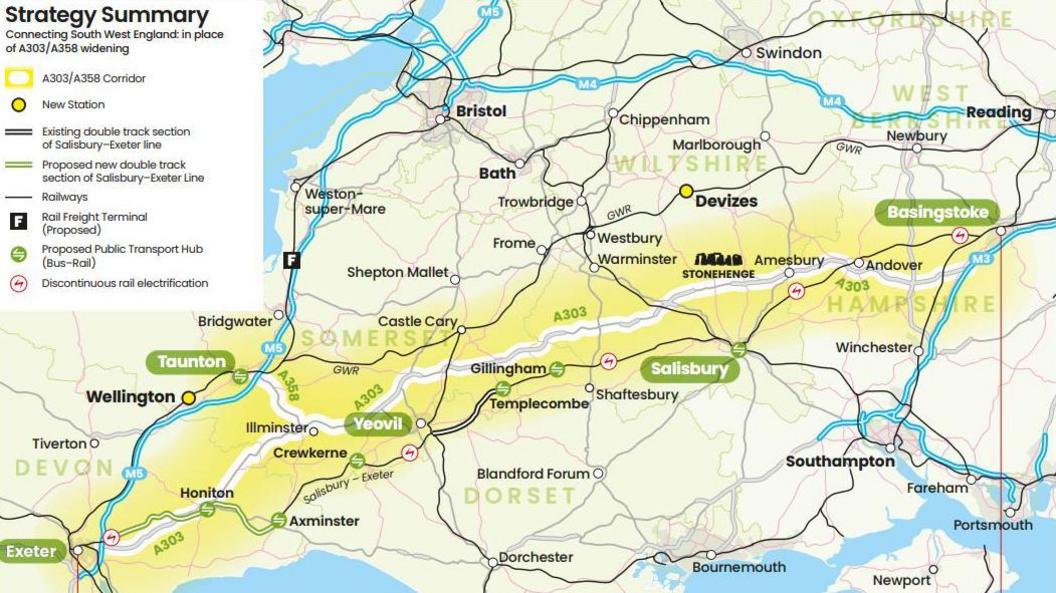
The new study recommends improving the parallel West of England railway line through Salisbury
Chris Todd. of Transport Action Network which commissioned the work, told the BBC: "This report shows a forgotten region, where transport policy and investment have been left in the sidings, undermining the ability to cope with increasing population and extreme weather events."
He added: "We believe this is a pragmatic way to bring real improvements, using a fraction of the savings that come from the cancellation of road schemes along the A303."
The report finds: "The challenge is simply sustaining daily operational performance, …this surely makes investment along this route a priority."
The Salisbury to Exeter Rail Users Group (SERUG) says passenger numbers are now "far higher" than before the Covid pandemic.
Spokesman Nick Hurrell said: "Performance is appalling. There's a target of 90% of trains to run on time.
"That target has been hit on just one day in the last four months. Over half the trains run late on this line."
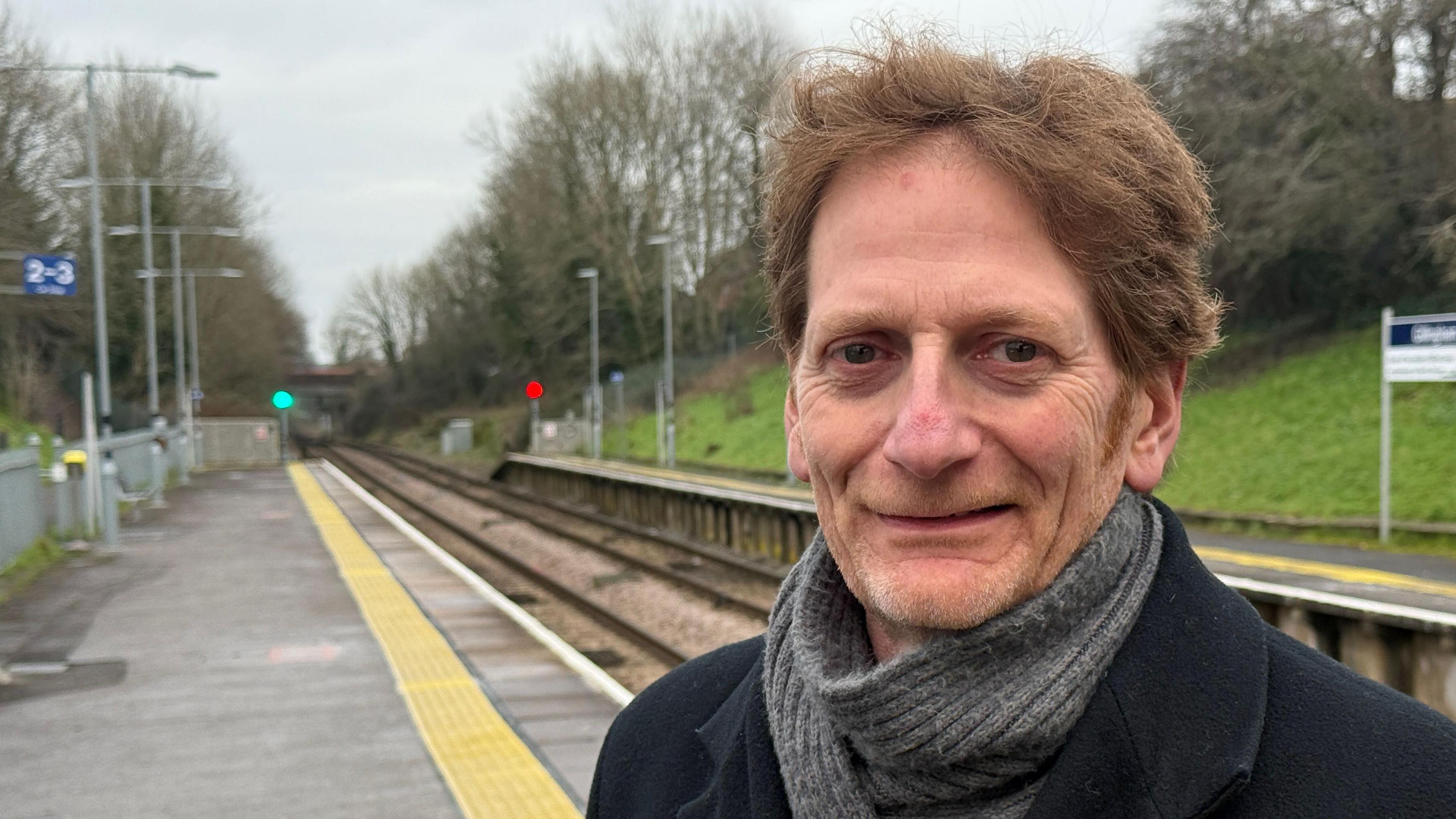
Chris Todd said the South West was a "forgotten region"
Network Rail has acknowledged the line suffers from poor reliability and punctuality.
The study concluded without investment in infrastructure, growing towns such as Mere, Shaftesbury Wincanton, Gillingham, Sherborne, Crewkerne and Yeovil would remain increasingly dependent on congested roads.
"There are 88 miles between Salisbury and Exeter," Mr Hurrell told the BBC.
"It needs 12 miles of additional track, doubling the loops where trains can pass at speed.
"That would transform the line from, at best, two trains an hour to four or even five in both directions."
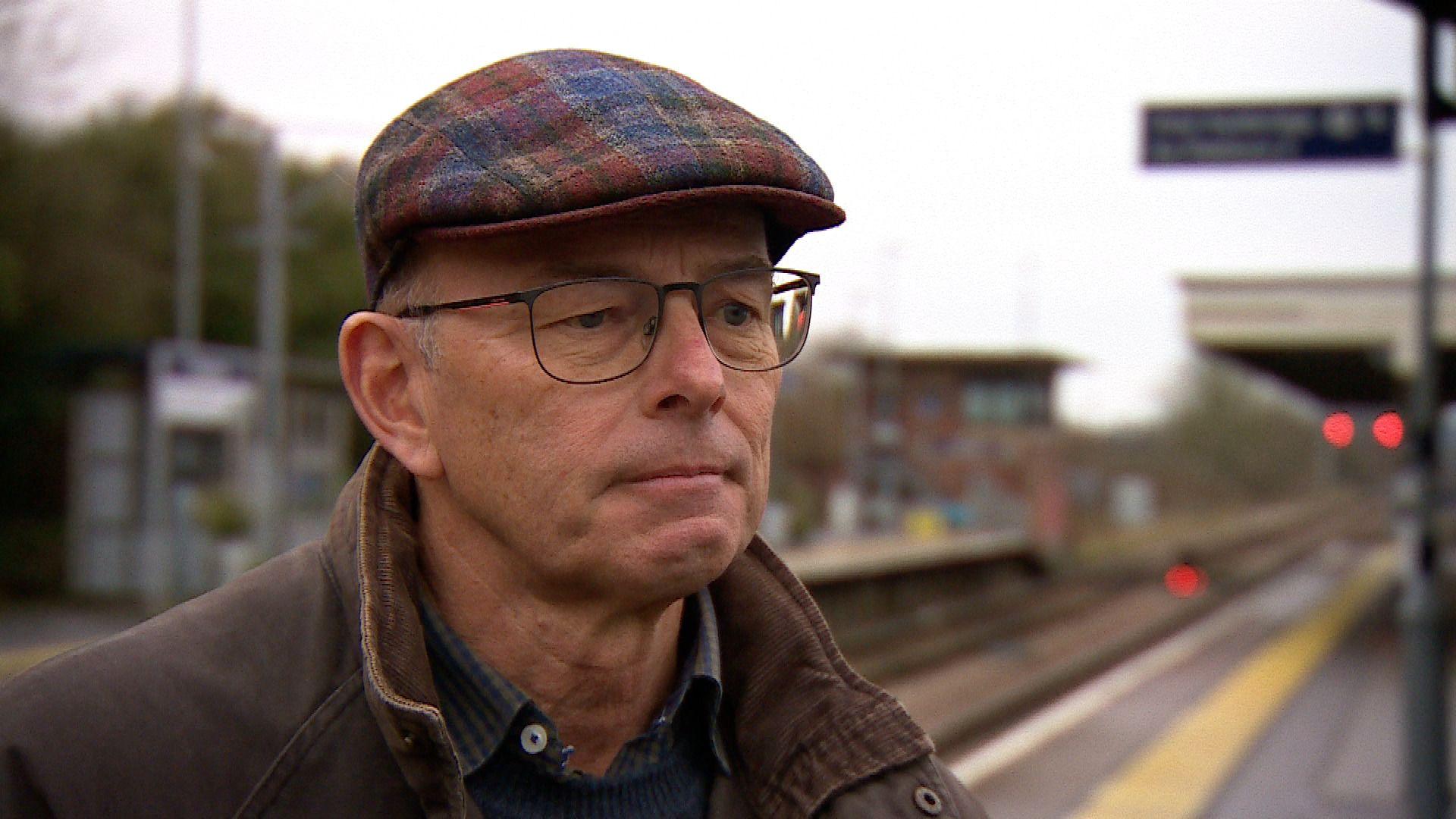
Nick Hurrell said performance on the line was "appalling"
The study favours expanding the line from single to double track between Axminster and Exeter, to support a long-planned Devon Metro of more frequent local services.
This would also help provide capacity for Great Western Railway services and freight trains to divert from the route between Westbury and Taunton, which is increasingly prone to winter flooding.
At present, the West of England line has no space for them.
The Greengauge 21 report concluded the investment needed was "very modest" in comparison with existing rail schemes like East West Rail between Oxford and Cambridge and the Trans Pennine route upgrade.
Analysis by Paul Clifton, BBC South Transport Correspondent
No significant new infrastructure investment is planned to improve the transport corridor linking London with the South West of England.
Even if every one of these rail recommendations is implemented, the traffic jams on the A303 would still get longer. The West of England line carries a fraction of the volumes on the parallel road.
National Highways calculates the road carries 25,000 vehicles a day each way, of which 10% are lorries, and estimates the volume will increase by 30% by 2039.
On summer Saturdays the numbers are far larger.
Successive governments argued that doing nothing about the A303 was not an option.
But doing nothing is the option the current government has chosen.
Get in touch
Do you have a story BBC Dorset should cover?
You can follow BBC Dorset on Facebook, external, X, external, or Instagram, external.
- Published29 July 2024
